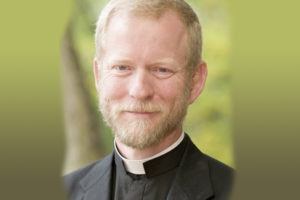I recently watched a compelling video prepared by a group called “Heartbeat International.” They provide women, who regret having taken an abortion pill, the chance to reverse their decision through a treatment involving progesterone. The protocol, though not yet officially “peer-reviewed,” appears to work well if the woman doesn’t wait too long, and the video includes pictures and rescue dates of many beautiful babies who have been saved this way.
What also caught my attention were the stories of several nurses working at Heartbeat International.
“I wanted to help out in a meaningful way,” one of them, named Amanda, said. “I was very excited to hear about abortion-pill reversal for the first time… I thought: God just brought that in front of me, and I think that’s what I’m meant to do.”
She went on to share a follow-up from two mothers whom she had recently assisted.
“They sent me pictures on WhatsApp after they had their babies. … I’m so thankful for their courage and their bravery. They talked about how much they love their babies and I’m just so happy for them. I’m just so grateful God gave me that opportunity to speak with both of them.
I’ve never had this kind of fulfillment in any previous nursing job that I’ve had — that feeling of Yes! — I’m making a difference in someone’s life … a difference in eternity.”
Every child saved this way is someone who now enjoys the opportunity to grow up, go to school, get married, have kids, grandkids and great-grandkids. It clearly makes an incalculable difference for that child, as well as for untold others. An “eternal difference.”
Each of us would like for our lives and our work to “make a difference,” and especially to make a lasting, impactful and eternal difference.
It should come as no small consolation to understand that whenever we make deliberate moral choices for the good or turn away from what is wrong, we are already starting to make those “eternal differences.” Through such decisions of consequence, we align our own will with God’s, and contribute, in his wisdom, to rectifying the many patterns of sin around and within us. Such decisions enable us to collaborate with his all-encompassing redemptive plan.
In the field of bioethics, these “decisions of consequence” arise with great regularity. When one of our ethicists at The National Catholic Bioethics Center, for example, helps a husband and wife to understand the moral problems surrounding in vitro fertilization, not only can this help them avoid the tragedy of trapping their young offspring in “frozen orphanages,” but it can also help them reflect on deeper questions like, “What does our infertility really mean?,” and “How does God want us to be fruitful?” This can lead them to consider new paths of grace, like reaching out to kids in the community who are parentless, through mentoring programs such as Big Brother/Big Sister, or through pursuing the generous path of foster parenting and adoption. Such generosity is another “decision of consequence” where we stand to make an eternal difference.
Our “decisions of consequence” need not be great or lofty gestures; they can be quite simple. I recall a true story first relayed by John W. Schlatter in 1993 that has circulated widely since.
Bill was walking home after his junior high school classes, his arms full of books and other items from his locker. At a certain point, everything spilled out of his arms, and another boy named Mark witnessed it and came over to help him pick it up off the ground, making some friendly small talk. The two of them decided to spend part of the afternoon together, playing games and goofing off. In succeeding weeks and months, they became friends.
Years later, Bill was reminiscing with Mark, and he brought up the day they first met.
“Did you ever wonder why I was carrying so many things home that day?” he asked. “I cleaned out my locker because I didn’t want to leave a mess for anyone else. I had stored away some of my mother’s sleeping pills and I was going home to commit suicide. But after we spent some time together talking and laughing, I realized that if I had killed myself, I would have missed that time and so many others that might follow. So Mark, when you picked up those books that day, you did a lot more: you saved my life.”
In a sense, each day for us involves a walk along the threshold of eternity, through small and not-so-small gestures, even though we may not always see the full implications of each of our decisions. Each day we have a chance to make beautiful, potentially life-saving and indeed eternal “decisions of consequence.”
Fr. Tadeusz Pacholczyk, Ph.D. earned his doctorate in neuroscience from Yale and did post-doctoral work at Harvard. He is a priest of the diocese of Fall River, Massachusetts, and serves as the director of education at The National Catholic Bioethics Center in Philadelphia. See www.ncbcenter.org and www.fathertad.com.

